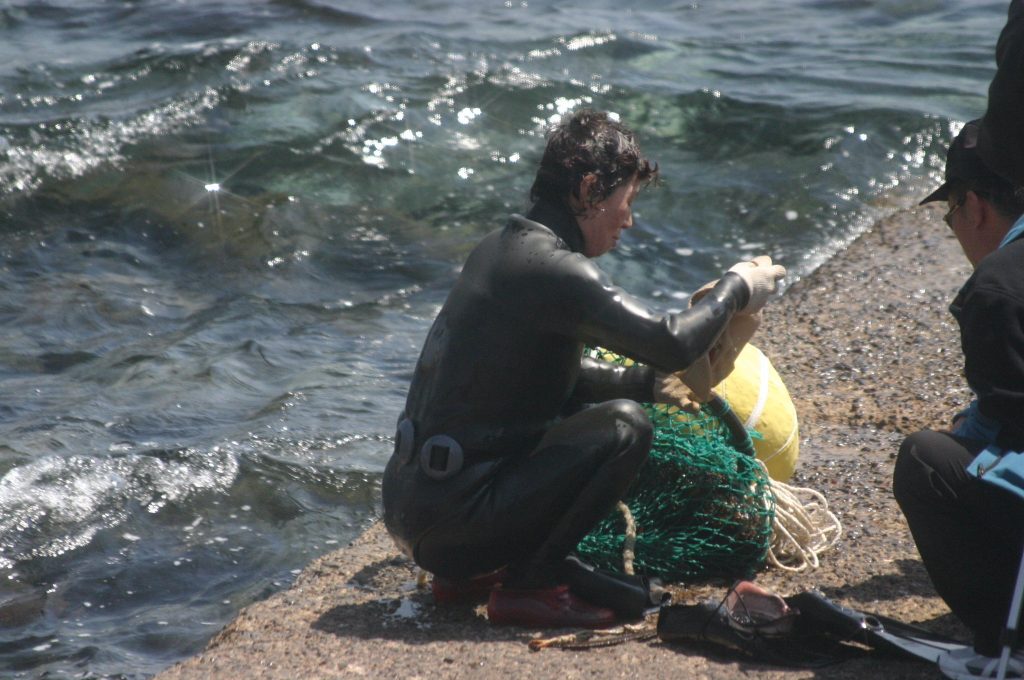The Korean island of Jeju is special: once upon a time, seaweed growing around the island used to feed grazing abalone populations. These were fished by the Haenyeo, free diving fisherwomen, who used to earn enough from their activity to be able to feed their families.

Alas, today this natural balance is rapidly becoming a distant memory. Many of the surviving Haenyeo are over 70, and while they are bathed in the reflected glory of a bygone age, the Korean government is working with the governing body on Jeju to bring through a generation of ecologically aware free divers to keep the fishery alive. The Guardian covered the story here.
These would-be successors face a number of problems: the abundant crops of seaweed on Jeju are no longer as extensive as they used to be, and as the seasons pass, abalone catches continue to decline. Some of the future Haenyeo are concerned because when they listen to the older fishers speak in public about what they do, they leave out details that really matter and paint a misleading picture of what is happening in the once thriving waters off Jeju. This is unfortunate, since the memories of Jejeu’s former glory days have been fed to Unesco by the autonomous province’s government. It was subsequently added to Unesco’s list of the Intangible Cultural Heritage of Humanity, as an object lesson in sustainability. What matters, though, is to break the logjam and get a recovery plan established while there is still a fishery to rescue. Fortunately for the inhabitants of Jeju, there are citizen scientists and environmentalists preparing to channel public goodwill into an NGO that will assess what can be recovered.
A problem the NGO has identified is that although previous generations of Haenyeo may have been aware of the early signs of environmental damage, they lacked the confidence and a scientific framework that would have given weight to their argument. Faced with the prospect of being put down by “real” scientists, not surprisingly, in the past many Haenyeo chose to stay silent.
A 69-year old Haenyeo whose adult daughter has decided to become a citizen scientist was heartbroken to learn that her daughter’s career move would involve becoming a Haenyeo. “I wanted her to have a proper job like joining the civil service,” she told journalists at The Guardian. “We older women don’t want our daughters to be Haenyeo.”


Leave a Reply